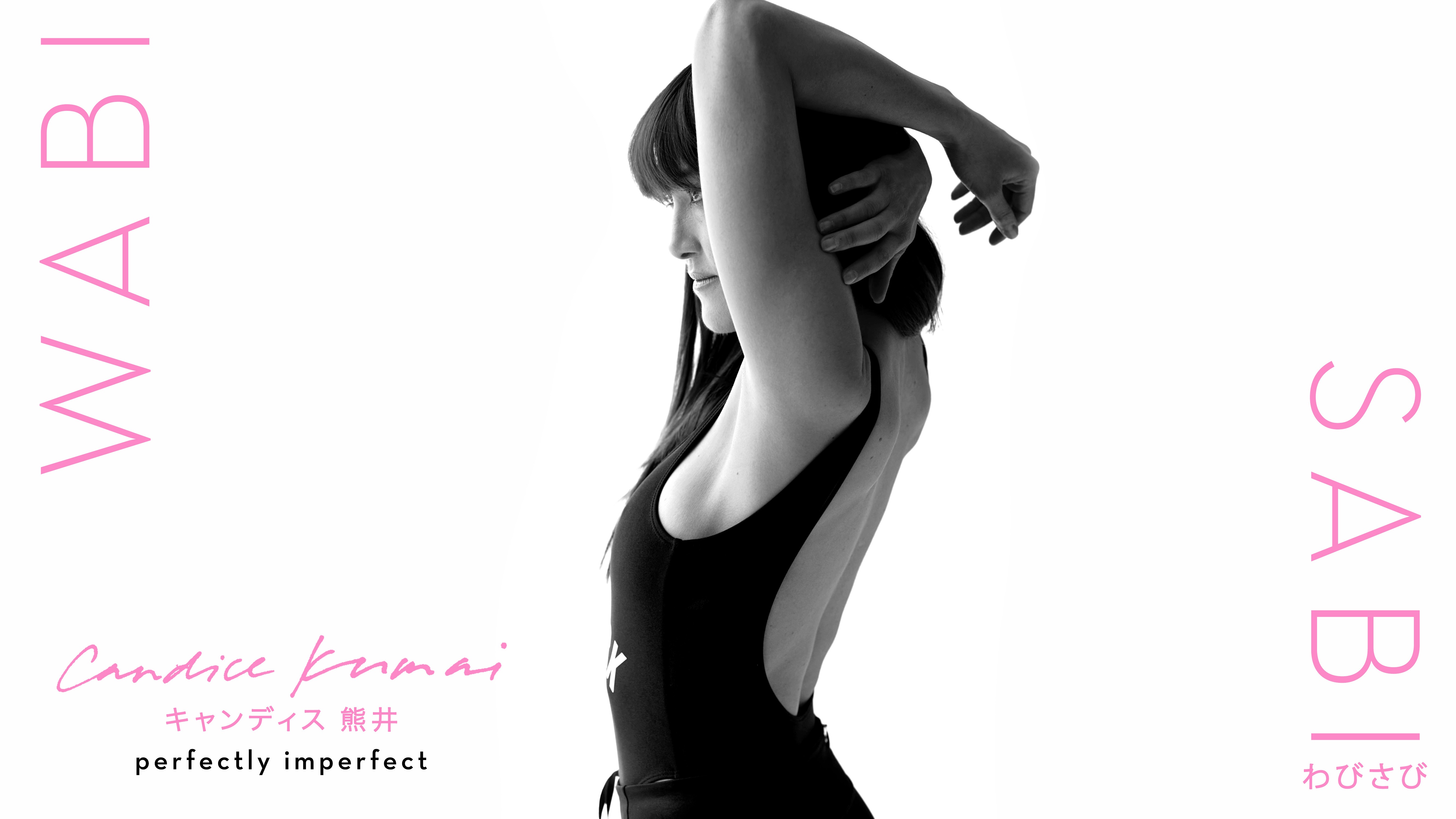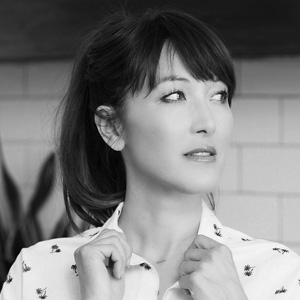Wabi sabi 侘び寂ひ, さびわび: defined in Japanese as celebrating imperfection, acceptance of transience, and taking a different perspective on what may be seen as “imperfect.” The acceptance and adoration of imperfection. Wabi sabi stems from the Japanese words wabi (to be alone, not to be bothered by other things, to simplify) and sabi (the beauty of passing time). To chef and wellness expert Candice Kumai, author of Kintsugi Wellness, the concept is especially relevant—and the spark that ignited her new Wabi Sabi podcast. Here's what led her to embrace imperfection…and broadcast it to the world.
Whenever I used to call my Japanese mom as I was having a mini-meltdown in New York City, she would say, “Candice, life cannot be perfect forever."
I used to think it was a sad thing to say. Growing up, I was always searching for a way to fit in… perfectly. As a young girl and a child of war, I identified with being “mixed” or a hapa girl (I'm half Japanese and half Polish American). I was brought up by incredible immigrant parents. I was raised different, I felt different, and of course, I looked different. I was teased from first grade into high school—simply because of the way I looked. What I didn't know back then was that I wasn't alone. So many of us feel different because we don't "fit the mold" or we simply just can't deny that we stand out.

Much to my surprise, looking different eventually led me to a career as a fashion model. In the industry, people kept telling me that I was beautiful. And while it was nice to hear that for a change, living up to industry expectations came at a price. Perfection was the cornerstone of my profitability. I was paid to maintain a certain look, size, waist, hips, and thighs for more than a decade. I struggled to stay “good enough” by fashion standards, and that pressure tortured me.
Both the quest for perfection and the forced “positive” outlook conflicted with my Japanese upbringing in every way.
Then I became a writer and content creator for top publications. Working in media, I have been taught to “be positive,” to “see the good” and write about only happy things—since at the end of the day, that’s what sells. That wound up feeling like just another form of pressure—because who can possibly be happy every moment of every day? Both the quest for perfection and the forced “positive” outlook conflicted with my Japanese upbringing in every way. It was, and always will be, unrealistic.

{{post.sponsorText}}
In time, I began to realize that chasing perfection was costing too much. I started appreciating every flaw and seemingly imperfect moment in my life, including dark days and chaotic moments of OMG, h-e-l-p m-e! With each passing year in the city, I began to be more open and accepting of the empathetic practice of wabi sabi. You may know of wabi sabi in reference to design, decor, and physical objects, but it also can take shape in reflection to your life. Either way, it means finding the beauty in imperfection.
Looking from the outside, you probably wouldn't know that I struggle with feeling different or inadequate, working through body issues, managing depression and past trauma... but nobody has a perfect life. I also think now is the time for so many of us to say, "I am a free bird and it's time for me to soar." Don't wait for someone else to control your destiny. Greatness awaits you—but remember, it will be perfectly imperfect, just as its supposed to be. Wabi sabi.
I've realized that you can gather strength from your past mishaps and life lessons and pursue your life's calling. Part of mine is the Wabi Sabi podcast: a podcast I wrote, directed, and self-funded. I chose to walk away from mainstream media and launch it on my own. After writing six best-selling books, I knew that I needed to stop letting other people determine my career. I did not want to do what everyone else wanted me to do, I did not want to "fit in," and I didn't want to have others tell me what to wear and what to say. Thirteen years of that was enough.
The practice of wabi sabi is about getting real.
I also believe that the practice of wabi sabi is about getting real. As a self-made hustler, I can share with you how hard this career has been—and still is. Managing tough finances, running a small business, constantly being told no, not getting paid for the majority of my work. These are things that have happened and are happening. But it's all wabi sabi.
If you subscribe now on iTunes, you'll hear firsthand what this career has been all about. I embrace my imperfections and my struggle and I'm slowly learning to adapt, endure, and enjoy the perfectly imperfect view. As my mother used to tell me, life cannot be perfect forever. Now I'm beginning to understand the wisdom in what she said.
 Candice Kumai, an internationally renowned wellness writer and chef, is a five-time, best-selling author. A Top Chef alumna and Food Network guest, she's appeared as a judge on Iron Chef America and Beat Bobby Flay. Candice is a former model, a lover of vegan cake baking, a matcha fan, and a total sneakerhead. In her downtime, she enjoys avocados, her cat Sis, and barre. Her new book, Kintsugi Wellness, is out now.
Candice Kumai, an internationally renowned wellness writer and chef, is a five-time, best-selling author. A Top Chef alumna and Food Network guest, she's appeared as a judge on Iron Chef America and Beat Bobby Flay. Candice is a former model, a lover of vegan cake baking, a matcha fan, and a total sneakerhead. In her downtime, she enjoys avocados, her cat Sis, and barre. Her new book, Kintsugi Wellness, is out now.
What should Candice write about next? Send your questions and suggestions to experts@www.wellandgood.com.
Loading More Posts...